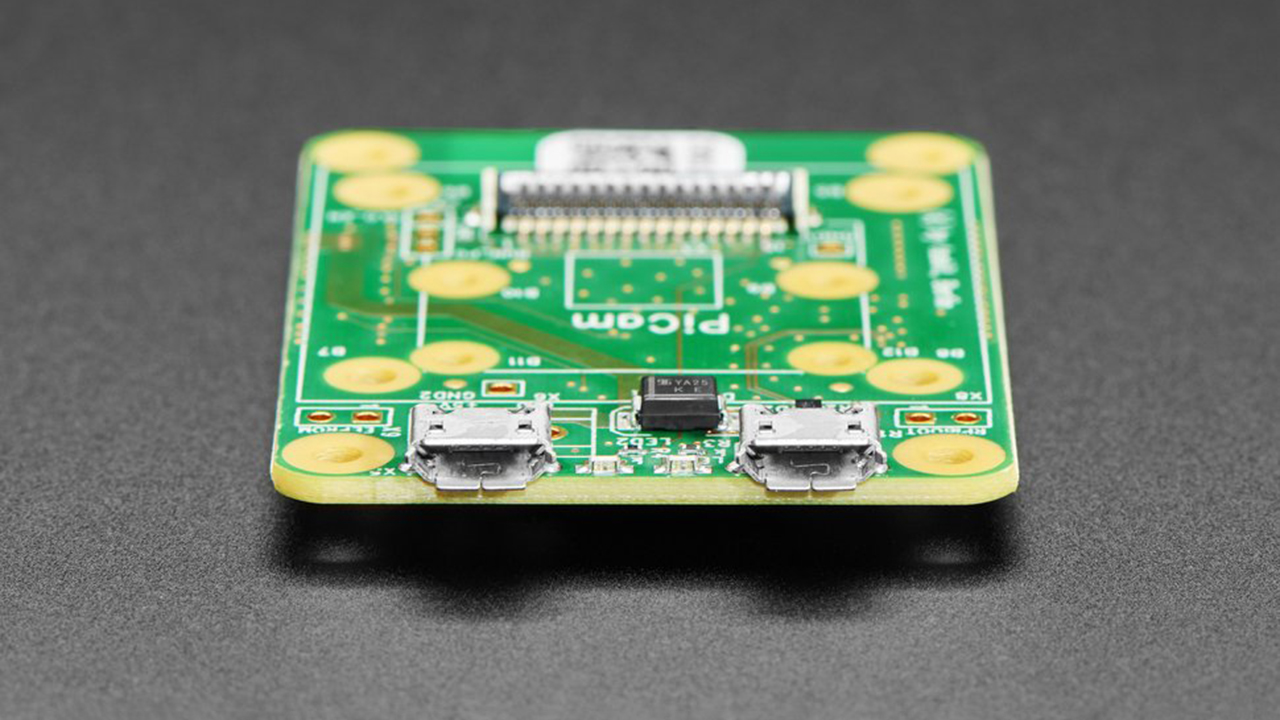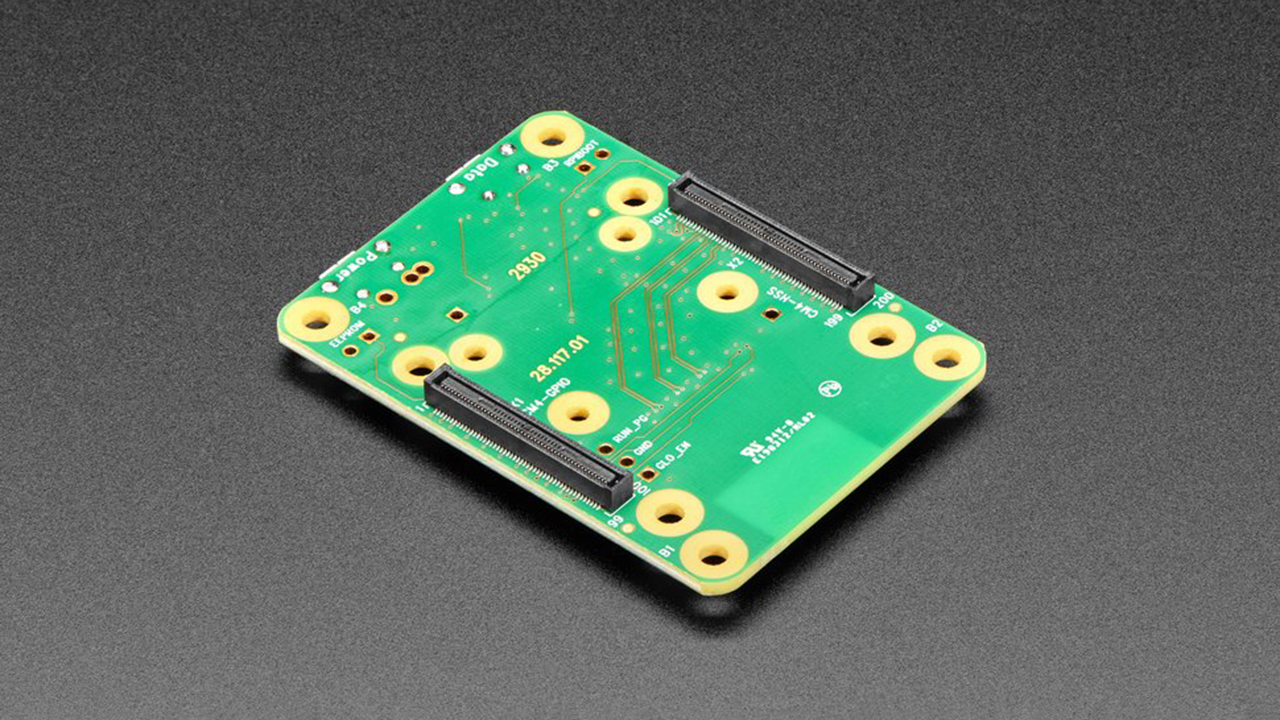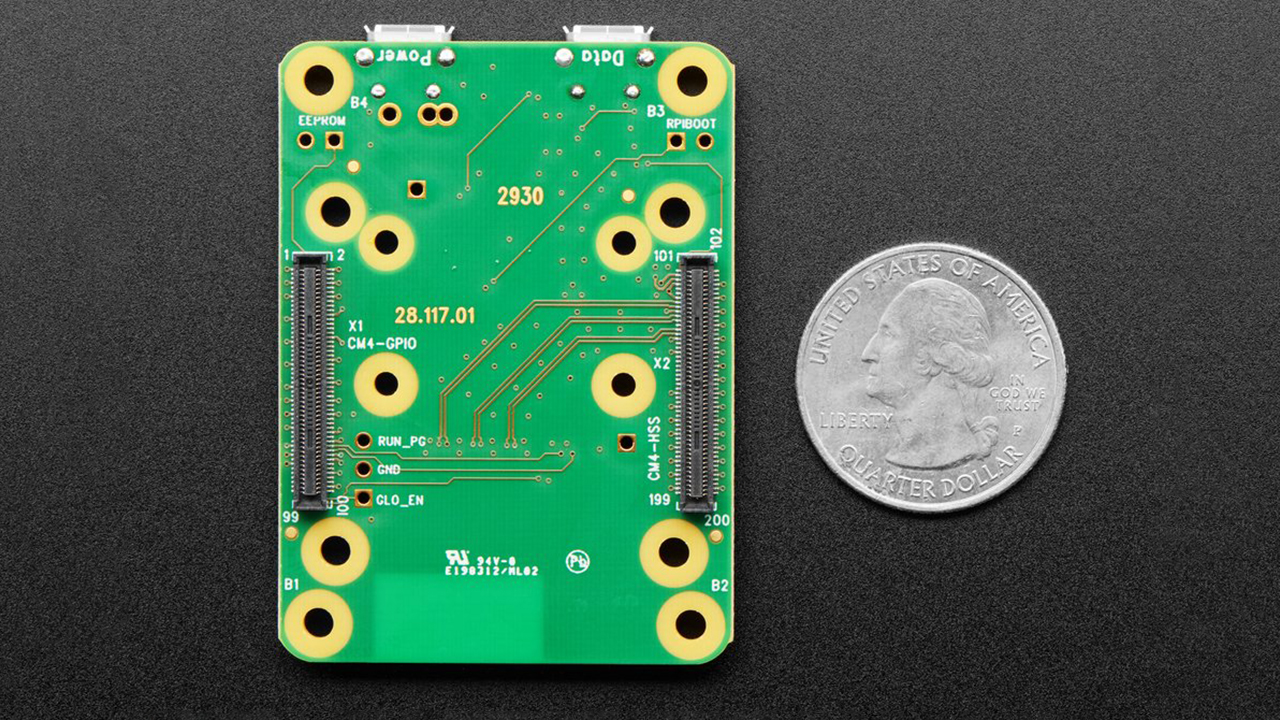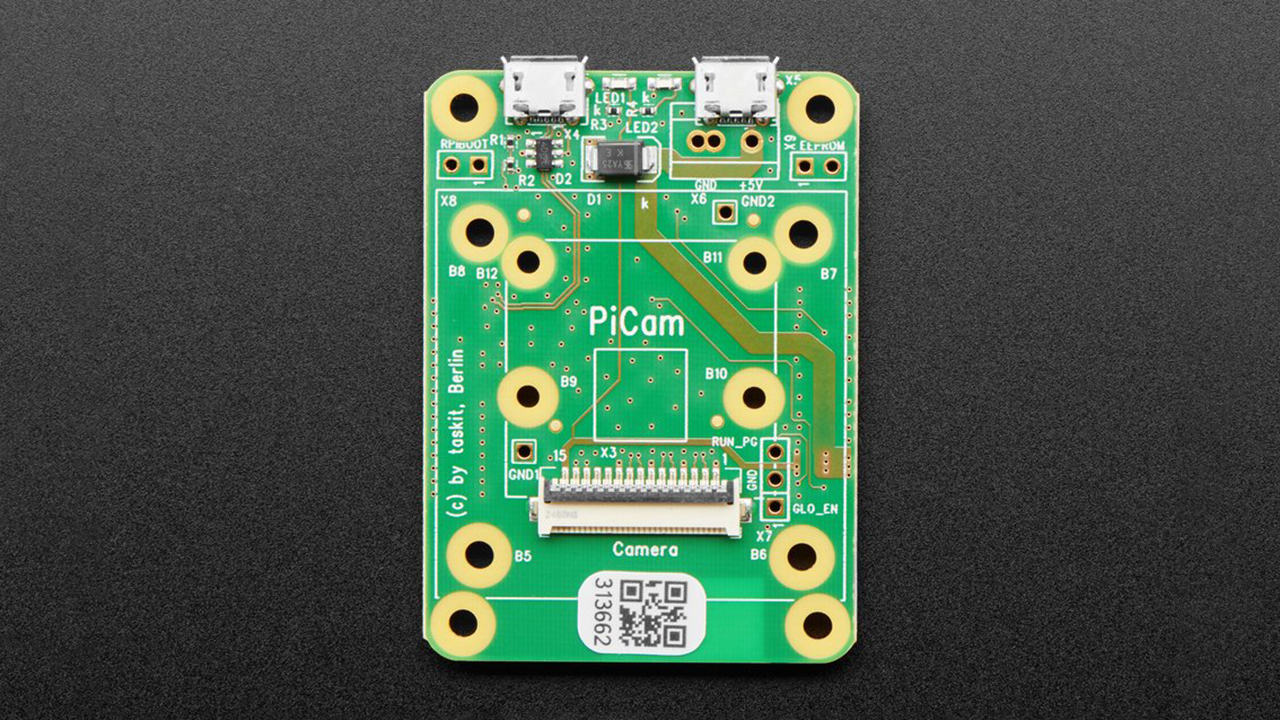Raspberry Pi Compute Module 4 Powers New PiCam Carrier Board
Tiny machine learning camera powered by Raspberry Pi
Users of Raspberry Pi Compute Module 4 boards who want to use the official Raspberry Pi Camera Module are left with a number of choices. Do they use the dedicated IO board or another carrier board? The latter is a popular option as the dedicated IO board is designed for development rather than daily use. We found Ledato's new PiCam module listed for $40 on Adafruit, and it looks like just the thing for CM4 camera projects.




The PiCam module is the same size as the Compute Module (sold separately), and can be mounted directly on top of the board via four M2.5 screw points, with just a small offset to assemble a very small Raspberry Pi camera system, perfect for adding computer vision in small places. The Raspberry Pi 4, and the Compute Module 4 offer decent machine learning / computer vision using TensorFlow Lite, so a carrier board such as PiCam offers embedded machine learning projects a little more power over higher priced alternatives.
Along with the ribbon connector for the camera module (also sold separately) - which is double-sided for ease of connection - the board also sports a pair of micro USB ports, one for power and the other for data. The latter allows you to SSH into the board’s memory, and it can also be used to write to the eMMC storage on the Compute Module.
As well as the official Raspberry Pi Camera Module, any camera connected via a 15-pin ribbon cable should be compatible, but there's a stark warning on the site to avoid at all costs plugging the cable in the wrong way around, or face permanent damage to all three modules. For anyone wanting to get their mind around the board before it arrives, the user manual (PDF) is available via the Adafruit store.
Get Tom's Hardware's best news and in-depth reviews, straight to your inbox.

Ian Evenden is a UK-based news writer for Tom’s Hardware US. He’ll write about anything, but stories about Raspberry Pi and DIY robots seem to find their way to him.